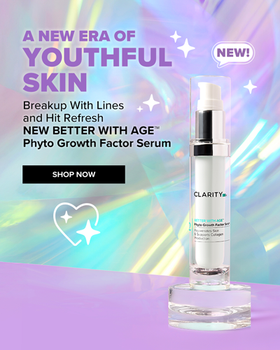
Why You Need Broad Spectrum SPF
Broad spectrum SPF is one of the most important steps in a skincare routine—if not the most important step. Sun exposure is a leading cause of skin cancer, dark spots and premature signs of aging, but broad-spectrum sunscreen can help.
Why broad spectrum?
Broad spectrum means the skin is protected from both UVA and UVB rays. UVA rays reach the deeper layers of the skin and lead to visible signs of aging. UVB rays affect the upper layers of the skin and contribute to burning.
Active ingredients in sunscreens protect the skin in two ways. Physical, or mineral, sunscreens like Physical Skin Defense™ Mineral SPF 50 with Antioxidants use ingredients including zinc oxide and titanium dioxide provide a physical barrier between the environment and the skin. They reflect and block the sun’s rays.
Chemical sunscreens like Skin Defense™ Environmental Protection SPF 50 can also use physical filters such as zinc but are paired with ingredients that absorb and release UV rays, such as octinoxate.
Mineral and chemical sunscreens are both highly effective forms of sun protection, as long as they’re broad spectrum so you get the most benefit against the negative effects of sun exposure.
Prevent skin damage
When skin is exposed to the sun, it triggers a reaction below the surface of the skin that creates abnormal cells that can become cancerous. While sunscreen alone can’t prevent skin cancer, proper use of an effective broad-spectrum SPF can help reduce the risk.
Prevent premature signs of aging
UVA rays accelerate the formation of fine lines, wrinkles, dark spots and changes in skin texture. Studies show that up to 90% of the signs of aging are due to sun exposure. When UV rays penetrate the skin, they damage existing collagen and inhibit collagen production leading to wrinkles and sagging skin.
Sun exposure also leads to hyperpigmentation. Discoloration occurs below the skin’s surface and takes years to appear, so consistent sunscreen use is essential before dark spots start to show.
When to apply
SPF should always be the last step in your morning skincare routine. Apply every morning, even when it’s cold, cloudy or you’re not spending time outside that day. UV rays can penetrate windows and clothing. When outside, reapply every two hours and after swimming or sweating.
ClarityRx’s two broad spectrum sunscreens are formulated for maximum defense against the sun’s harmful rays and boosted with caffeine, an antioxidant that enhances skin protection.



Leave a comment